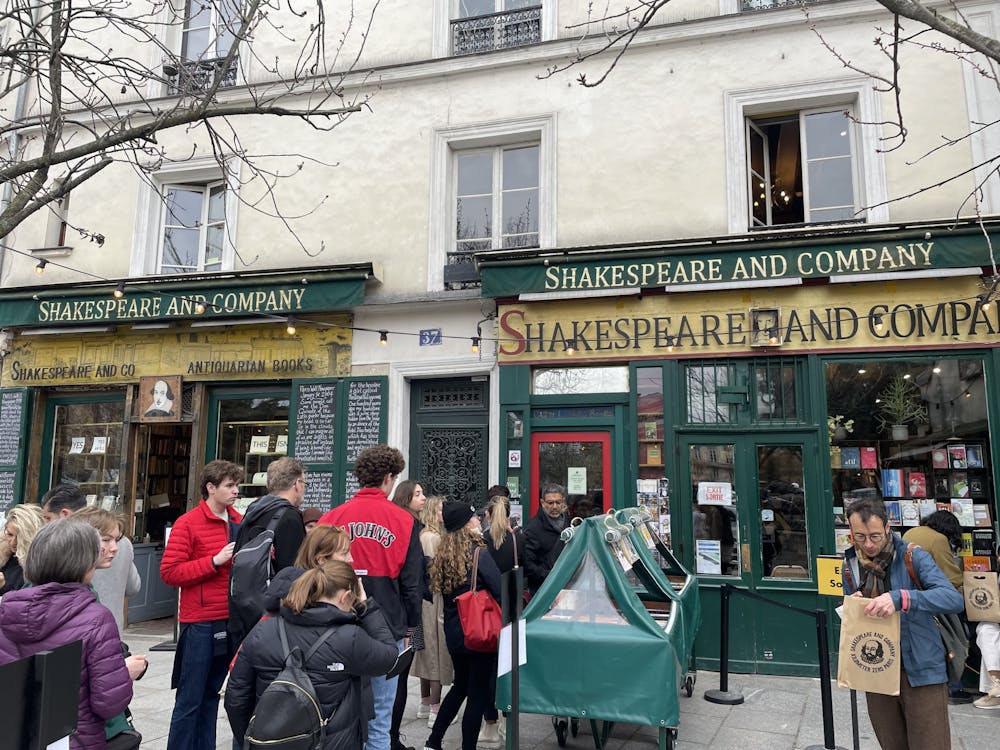A new take on the love story ended prematurely by illness, We Live in Time gives us a realistic and bittersweet view of what it means to love without regrets. Its genuine interactions and nonlinear plot create a relationship that’s beautiful because of the characters’ efforts toward each other, rather than their tragic premise.
We Live in Time follows Almut Brühl, a chef with a passion for her craft, and Tobias Durand, a divorcée who lives each day listlessly. The two meet when Almut accidentally runs Tobias over with her car, and they embark on a swift and idyllic romance in the Surrey countryside. However, Almut soon receives a diagnosis for ovarian cancer, forcing her and Tobias to navigate the path between health and happiness.
Almut and Tobias’ romance feels compelling not so much because of Almut’s impending mortality, but because they give themselves completely to the moments they’re with each other. Regardless of how mundane a situation is, both of them are fully present. For instance, after Almut and Tobias’ first night together, Tobias awkwardly says he should leave, and Almut asks why. He responds that he doesn’t actually have things to do, and asks the same of her — she’s also free.
Rather than adhere to Tobias’ vague perceptions of typical romantic progression, Almut takes the opportunity to bring him around the village’s farmer’s market, and they spend the day with each other. In this scene and through the rest of the movie, the two characters make the most of each other’s presence — they interact in a way they won’t regret.
Almut and Tobias’ dynamic is a refreshing contrast to many other rom-com couples, because the genre tends to make use of fateful meetings or dramatic proclamations to illustrate someone’s feelings for another person. Even though those tropes hold a certain excitement, they don’t encapsulate the ordinary interactions the main characters have. Almut and Tobias’ romance feels relatable and raw, far from a premeditated performance.
The movie leans into a feeling of authenticity, which appears during Almut and Tobias’ awkward moments and breaths of relief, in addition to more plot-driven sequences. After their first date goes well, we see a shot from the side of Almut’s closed door, with Tobias sighing contentedly on one side, and Almut covering her face to blush on the other. If they speak at the same time, both let the other person speak first, and because Tobias struggles to speak in the moment, he sometimes writes his thoughts on paper before telling them to Almut.
The characters also feel much more genuine than if their story was just told through romantic montages and polished dialogue. Even though their romantic development is brief, they feel safe and comfortable with each other. Their bond seems founded on more than the urgency that comes with Almut’s illness, and in turn, the scenes that do center on mortality hold greater weight.
When the characters approach the topic of Almut’s death, she makes it clear that her version of living without regrets includes living for herself, as well as her relationship with Tobias. One of the movie’s central conflicts is that Almut wants to pursue a life that doesn’t revolve around her illness, such as continuing to work at her restaurant or discontinuing chemotherapy. Even though Tobias is often vehemently against this, We Live in Time shines because he ultimately supports her. After accepting Almut’s decision to discontinue treatment, he tells her that he respects her decision to have “six...amazing, fantastic, proactive months [rather] than 12 really, really passive ones”, and proposes to her to fulfill both of their wishes.
In addition to the plot, the movie’s nonlinear storytelling contributes to its feeling of authenticity. The jumps back and forth in time mimic the way Almut and Tobias recollect memories of each other, suggesting that, because they remember each other through memories, the characters live fully during every interaction.
We Live in Time is a short but sweet take on life and love, with main characters who feel like real people rather than actors in a drama. It’s a heartfelt reminder that our relationships don’t have to be filled with plotlines, as long as we make the most of our time with each other.





